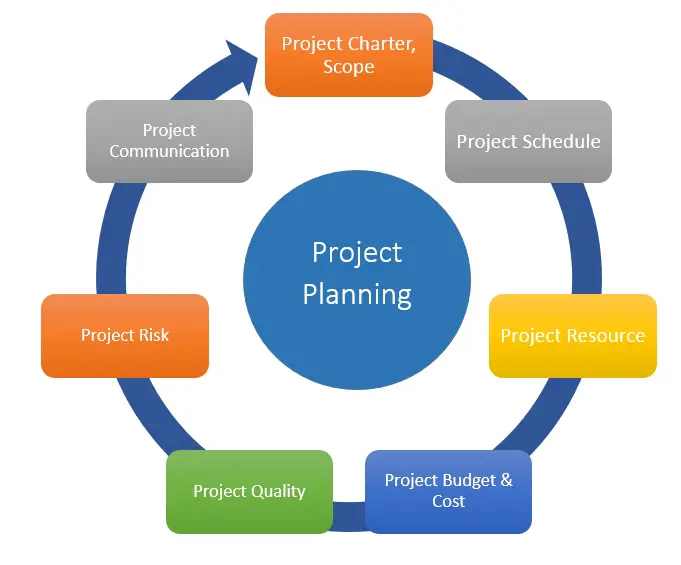Project Management Missteps: Avoiding Planning and Management Errors

Project management is a complex and challenging field, and even the most experienced project managers can make mistakes. However, by being aware of the common missteps that can occur during the planning and management of a project, you can take steps to avoid them and improve your chances of success.

1. Failing to Plan Adequately

One of the most common project management missteps is failing to plan adequately. This can lead to a number of problems, including:
- Scope creep: The project scope is not clearly defined, which can lead to changes being made throughout the project lifecycle.
- Missed deadlines: The project timeline is not realistic, which can lead to delays and increased costs.
- Budget overruns: The project budget is not accurately estimated, which can lead to financial problems.
2. Not Managing Risk Effectively
Risk management is an essential part of project management. By identifying and managing potential risks, you can reduce the chances of them occurring and impacting the project. However, many project managers fail to manage risk effectively, which can lead to:
- Project failures: The project may fail if a major risk occurs and is not managed properly.
- Reputational damage: The project may damage the reputation of the organization if it is not managed properly.
- Financial losses: The project may incur financial losses if a major risk occurs and is not managed properly.
3. Not Communicating Effectively
Communication is essential for successful project management. However, many project managers fail to communicate effectively with stakeholders, which can lead to:
- Confusion: Stakeholders may not understand the project goals, timelines, or deliverables.
- Conflict: Stakeholders may disagree on the project approach or decisions.
- Delays: The project may be delayed if stakeholders are not kept informed of progress.
4. Not Managing Change Effectively
Change is inevitable in project management. However, many project managers fail to manage change effectively, which can lead to:
- Project failures: The project may fail if major changes are not managed properly.
- Cost overruns: The project may incur cost overruns if changes are not managed properly.
- Delays: The project may be delayed if changes are not managed properly.
5. Not Managing Stakeholders Effectively
Stakeholders are individuals or groups who have an interest in the project. Managing stakeholders effectively is essential for project success. However, many project managers fail to manage stakeholders effectively, which can lead to:
- Conflict: Stakeholders may disagree on the project approach or decisions.
- Delays: The project may be delayed if stakeholders are not kept informed of progress.
- Project failures: The project may fail if major stakeholders are not managed properly.
By avoiding these common project management missteps, you can improve your chances of project success. Remember, project management is a complex and challenging field, but by being aware of the common pitfalls and taking steps to avoid them, you can increase your chances of success.## Project Management Missteps: Avoiding Planning And Management Errors
Executive Summary:
Effective project management is crucial for successful project outcomes. However, common pitfalls can hinder the planning and execution process. This article analyzes project management missteps, highlighting key errors to avoid and providing actionable recommendations to enhance project success.
Introduction:
Project management involves overseeing the planning, execution, and completion of projects within specific constraints. However, various missteps can compromise project efficiency and jeopardize its objectives. Understanding these errors and implementing corrective measures are essential for project managers seeking to mitigate risks and ensure project success.
FAQs:
1. What are the most common project management mistakes?
- Inadequate planning and lack of stakeholder involvement
- Communication gaps and poor collaboration
- Unrealistic project timelines and budgets
- Ineffective risk management and mitigation strategies
- Lack of project monitoring and performance tracking
2. How can I prevent project management missteps?
- Conduct thorough project planning and analysis
- Foster effective communication and stakeholder engagement
- Set realistic timelines, scope, and budgets
- Proactively identify and mitigate risks
- Establish regular project monitoring and progress tracking
3. What are the consequences of poor project management?
- Project delays and cost overruns
- Reduced project quality and dissatisfaction
- Team burnout and low morale
- Reputational damage and loss of trust
- Negative impact on project outcomes and business objectives
Planning Errors
1. Inadequate Planning:
- Failure to define project scope, goals, and objectives clearly
- Lack of stakeholder identification and involvement
- Insufficient risk assessment and contingency planning
2. Unrealistic Timelines and Budgets:
- Setting overly optimistic timelines without considering dependencies
- Underestimating project complexity and resource requirements
- Failure to allocate adequate resources for risk mitigation
Management Errors
3. Communication Gaps:
- Poor communication channels and limited information sharing
- Insufficient stakeholder engagement and feedback collection
- Lack of transparency and clarity in decision-making
4. Ineffective Risk Management:
- Failure to identify and assess potential risks proactively
- Lack of risk mitigation strategies and contingency plans
- Ineffective risk monitoring and response mechanisms
5. Lack of Monitoring and Control:
- Inadequate project tracking and performance measurement
- Absence of regular progress updates and status reports
- Limited stakeholder involvement in monitoring and control activities
Conclusion:
Avoiding project management missteps requires a proactive approach to planning, management, and risk mitigation. By addressing these common errors, project managers can enhance project efficiency, improve stakeholder satisfaction, and ensure successful project outcomes. Effective project management is not merely about adhering to a checklist but involves continuous improvement, adaptability, and a commitment to delivering exceptional project results.
Keyword Tags:
- Project Management
- Project Planning
- Risk Management
- Stakeholder Engagement
- Project Monitoring

